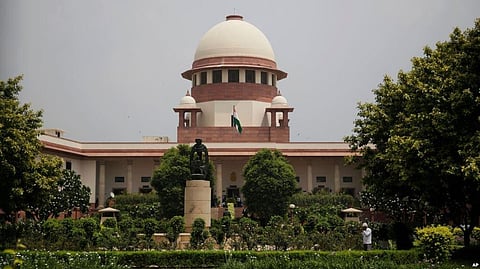
- Home
- न्यूजग्राम
- NewsGram USA
- India
- World
- Politics
- Entertainment
- Culture
- Lifestyle
- Economy
- Sports
- Sp. Coverage
- Misc.
- NewsGram Exclusive
- Jobs / Internships

The chief justice of Supreme Court of India has presided over a string of recent rulings that grant more rights to women, gay couples and religious minorities, challenging deeply conservative Indian society before he retires next month.
In the latest decision Thursday, Chief Justice Dipak Misra and the rest of the five-member court struck down a 158-year-old law that treated adultery in certain cases as a criminal offense punishable by up to five years in prison.
The court called the law, which did not allow wives to prosecute adulterous husbands, unconstitutional and noted that a "husband is not the master of woman." Adultery can still be grounds for divorce in India, the verdict said, but a criminal penalty violated women's protection to equal rights under the law.
Accolades for ruling
The verdict was hailed by activists and left-of-center members of India's Parliament.
"Excellent decision," tweeted Sushmita Dev, a lawmaker and president of the opposition Congress party's women's wing. She said "a law that does not give women the right to sue her adulterer husband … is unequal treatment and militates against her status as an individual."
Participants displays a rainbow flag and cheer as gay rights activists and their supporters march during a gay pride parade in New Delhi, India. VOA
Amnesty International India said the decision was "a progressive judgment" and the old law was a "remnant of a time when a woman was considered to be the property of her husband."
The scrapped law allowed men to file charges against other men who had affairs with their wives. Women having affairs could not be prosecuted, but they also couldn't file a complaint against cheating husbands.
media
Gay couples, religious minorities
Earlier this month, the Misra-led court also struck down a colonial-era law that made gay sex punishable by up to 10 years in prison. The 1861 law, a relic of Victorian England that hung on long after the end of British colonialism, was "a breach of the rights of privacy and dignity," the court ruled. It added that "history owes an apology to the members of this community and their families, for the delay in providing redressal for the ignominy and ostracism that they have suffered through the centuries."
On Thursday, the court also decided not to reconsider a 1994 decision that would have delayed proceedings in a case over the ownership of the site of a mosque that Hindu hard-liners demolished in 1992.
Indian Muslim women talk while walking through a market in Ahmadabad, India. VOA
Fast pace for India
The court's recent pace of decisions speaks to another feature of Misra's tenure: expediting cases in a country where they routinely take decades to resolve.
There are 33 million court cases pending in India, government figures show.
Misra is stepping down as chief justice next week when he turns 65, the mandatory retirement age for Supreme Court judges.
Also Read: What Would Be The Outcome of The Judgement on Homosexuality with BJP at The Centre?
He joined India's highest court in 2011. His 13-month tenure as chief justice has won him accolades from advocates of disadvantaged groups but drawn unprecedented criticism from other members of the bench.
In January, the four most senior justices held a news conference against Misra, who as chief justice controls the court's roster and decides who will take which cases, listing a litany of problems that they said afflicted the court and risked undermining India's democracy. Misra met with the dissenting judges, who continued on the bench. (VOA)
